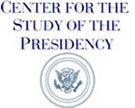1) Why is Pay Equity important for Jordanian women?
Asma Khader: First of all, pay equity is a fundamental right. It is also a necessary condition through which justice and dignity are ensured, and which prevents discrimination. Secondly, pay discrimination contributes to the exclusion of women from the labour market, which adversely affects families and the national economy. Moreover, pay equity is a measure of the degree to which a society appreciates the potential and abilities of women. It is also an expression of its affirmation of the principles of equality and justice.
2) How does Jordan compare with other Arab countries on this issue?
Asma Khader: While we are more advanced on the issue of equality of pay than other Arab countries, we lag behind in other areas which relate to the discrimination of women in the workplace. The gender pay gap in Jordan is estimated at seven per cent, which is not bad compared to other middle income countries. But when skills levels are taken into account, it becomes clear that women in Jordan are paid much less than men. For example, women professionals are paid a staggering 33 per cent less than male professionals.
3) What are the main challenges to pay equity in Jordan?
Asma Khader: Unemployment is a major challenge to pay equity. When the demand for jobs increases, the labour market is affected by various social, cultural and religious factors – including the view that men are the breadwinners, which may lead to the exclusion of women from the labour market.
Another challenge is the absence of legislation to deter discrimination. Jordan’s Constitution and laws, including labour legislation, and the civil service system provide for equality of treatment between men and women, but none of these instruments effectively prohibit and punish discrimination. Thus, women have no recourse to justice via courts when these laws are violated, because the judiciary lacks a definitive text that prescribes the sanctions for an employer who violates the rights of female employees. Discrimination often goes unpunished.
4) What is the impact of the global financial and economic crisis on women’s wages in Jordan?
Asma Khader: Dwindling job opportunities and increased competition have been major impediments to the achievement of decent work for Jordanian women. The crisis has cast its shadow on the Jordanian economy and women are the most affected by this, as evidenced by the high unemployment rate among women. In times of economic recession and crisis, women are often the first to be expelled from the labour market, and the first to confront obstacles in the search for employment.
5) What have successive Jordanian governments done to achieve pay equity?
Asma Khader: Jordan has a clear policy of encouraging women’s entry into the labour market and preventing discrimination against women. The Kingdom has ratified several international conventions that assert the right to equal pay for equal value of work. It is also worth noting that Section 23, 2 (a) of the Jordanian Constitution specifies that all workers shall receive wages appropriate to the quantity and quality of the work undertaken.
The Ministry of Labour strives to remove obstacles to the equality of pay in collaboration with the Department of General Statistics, which aims to develop an evidence base to show the gaps and enable planning to bridge them. The soon to be approved National Employment Strategy will also focus on pay equity, which disproportionately impacts the entry of educated women into the labour market.
6) What has been the role of trade unions and civil society?
Asma Khader: I do not think that enough has been done on this issue. Women’s organisations have been much more assertive on combating violence against women or promoting women’s participation in political life than on women’s rights at work. Studies conducted by us have concluded that women’s participation in trade unions is very low and that trade unions can indeed play a more active role in the improvement of working conditions of women. So it is imperative to develop and support programmes that enhance the role of women in trade unions and civil society organisations.
7) What has the Jordanian National Commission for Women done to promote pay equity?
Asma Khader: The Jordanian National Commission for Women has adopted a strategy that aims to put in place long term programmes to address this issue and to implement the recommendations of a recently released study on Pay Equity in Jordan, which was conducted in collaboration with the ILO. We have launched a campaign which encourages employed women who have been the victims of discrimination in the workplace or violations of international standards at work, to contact the Office for Women’s Complaints and register these violations. This is especially encouraged in the case of violations regarding equality of pay. This documentation process provides an evidence base for the kinds of discrimination against working women and helps us to find ways to combat these practices.
We are due to start work soon on the National Women’s Strategy 2011-2016, which will seek to promote women’s participation in the labour market by improving their working conditions, in particular with respect to remuneration. We will prepare special publications and distribute them to working women and to employers, as well as organize workshops and seminars on women’s rights at work. We hope to secure sufficient resources to fund media and awareness-raising campaigns and training sessions for NGOs that work with women. A list of demands to ensure justice and equality in the workplace was recently submitted to Parliament, His Majesty the King of Jordan and the Prime Minister. It includes a section on working women with provisions on pay equity.




